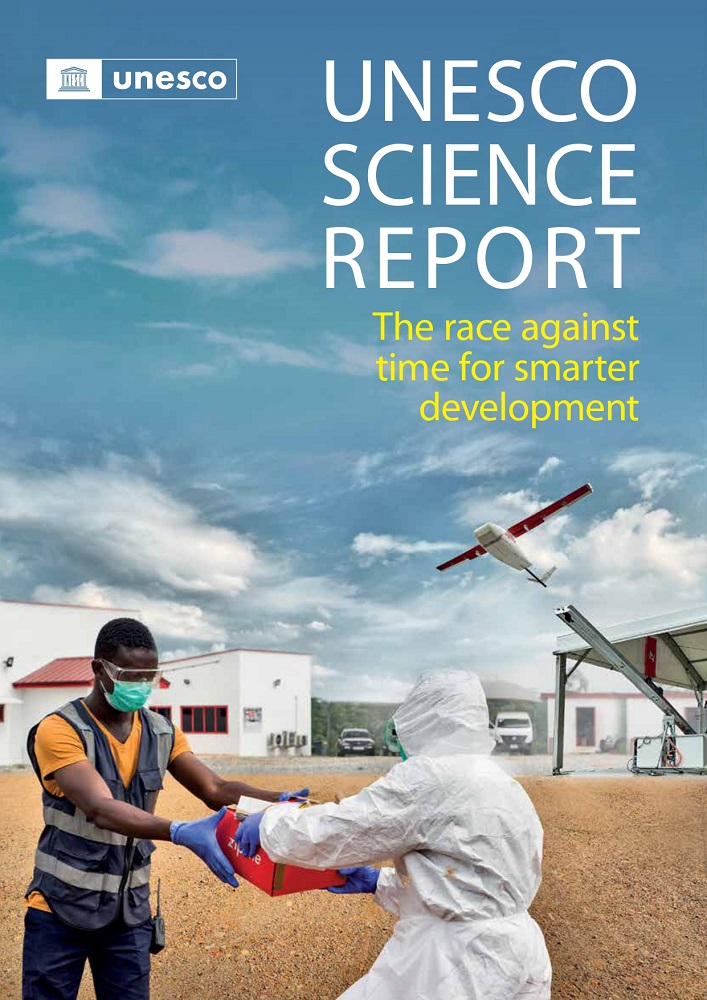Development of geothermal in Turkey – UNESCO Science Report, Fusun Servin Tut Haklidir
The growth of geothermal in Turkey from 2009 to 2019 has brought its generation capacity up to 1.5 GWe which ranks 4th in the world behind only Philippines, Indonesia, and USA.
Noting how development priorities have aligned over the past five years, the UNESCO Science Report shows that countries of all income levels prioritize their transition to digital and “green” economies in parallel.
According to the report; Turkey is diversifying the country’s energy mix to reduce its high reliance on fossil fuel imports from Eurasia and the Middle East. The contribution of hydroelectricity remains constant in the face of natural obstacles, prompting the government to turn to wind, solar and geothermal resources. Between 2012 and 2018, the share of renewable energy sources in Turkey’s primary energy supply increased from 3% to 8%. Geothermal energy has made a significant contribution to Turkey’s energy mix.
We share, with permission, the evaluation article of Dr. Fusun Servin Tut Haklidir from Istanbul Bilgi University, Department of Energy Systems on the development of geothermal energy in Turkey in ten years, included in the UNESCO Science Report 2021:
How Turkey became a role model for geothermal energy within a decade
Between 2009 and 2019, the number of geothermal power plants in Turkey shot up from 3 to 49. This corresponds to a geothermal capacity of 1.5 GWe, placing Turkey fourth in the world for this indicator after the USA, Indonesia and the Philippines, according to the Turkish Energy Market Regulatory Authority.
In the past decade, Turkey has drilled more than 1 000 geothermal wells in Western Anatolia (Kaya, 2017). Thanks to this extensive experience, geologists have managed to drill wells as deep as 4 500 m in the Büyük Menderes Graben, an active rift basin in western Turkey with great geothermal potential that is about 140 km long and up to 14 km wide. Geothermal exploration has accelerated since the adoption of the Law on Geothermal Resources and Natural Mineral Waters in 2007. This law gave potential private partners the necessary confidence to invest, eliminating some of their concerns with regard to legislative, technical and administrative hurdles. For instance, the law reduced the number of licenses to two.
In parallel, the Renewable Energy Support Scheme of 2010 introduced a new feed-in tariff (US$ 0.105 per kWh) guaranteeing companies a purchase price for the energy they generated at a fixed rate for ten years. Investors are currently waiting for news of the new feed-in tariff from 2021 onwards before renewing their commitment to geothermal power production in Turkey.
The European Bank for Reconstruction and Development has also supported the development of geothermal energy financially to accompany the decarbonization of Turkey’s economy.
Turkish geothermal power companies have participated in the EU’s Horizon 2020 programme through consortia. This has enabled them to interact with technology providers and operating companies in Europe, in particular. Two of these bigbudget, multidisciplinary projects are Geosmart and GeoPro. The Turkish hydro-electric power company, Zorlu Energy, has received around € 3.5 million from Horizon 2020 through its participation in six research projects
You can find the original article of Füsun Servin Tut Haklidir here.
You can access the full report at this link.
Source: UNESCO via our Turkish language platform JeotermalHaberler




